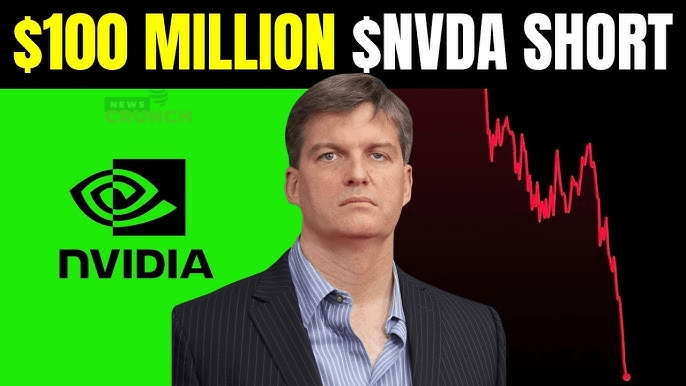
Introduction
In global finance, few names resonate as strongly as Michael Burry. Known for his bold predictions and unconventional strategies, Burry carved a unique space for himself among the most influential investors of the 21st century. His story is about wealth, vision, resilience, and an unshakable belief in data over popular opinion.
Burry rose to worldwide recognition during the 2008 housing crash, when his contrarian bet against the U.S. housing market made headlines. At a time when most investors were optimistic, he saw warning signs in the subprime mortgage sector. This foresight was dramatized in The Big Short, where his character showed how conviction can sometimes look like madness until it proves correct.
Beyond the fame of that single moment, Michael Burry has spent decades building his career, managing billions through Scion Capital, and exploring diverse investments, including water rights and farmland. His approach to markets blends deep analysis with a willingness to withstand criticism, setting him apart from mainstream fund managers.
This article explores Burry’s life from his early challenges to his professional triumphs, unique health struggles, personal life, and the legacy he leaves behind. It will also highlight his philosophies, key financial decisions, and ongoing influence on today’s markets. Whether you’re new to investing or a seasoned professional, Michael Burry’s journey offers lessons in courage, foresight, and the power of independent thinking.
Quick Biography
Michael James Burry, often referred to simply as Michael Burry, was born on June 19, 1971, in San Jose, California. A physician by training and an investor by passion, Burry’s dual career path makes him one of the most fascinating figures in finance. He studied economics and pre-med at UCLA before earning his M.D. at Vanderbilt University School of Medicine. Although trained as a doctor, his true calling was financial analysis.
Burry started investing during medical school, running a personal blog analyzing stocks. His sharp insights quickly attracted attention from prominent investors, who realized that his deep value approach mirrored some of the legendary strategies of Warren Buffett and Benjamin Graham.
In 2000, Burry founded Scion Capital, a hedge fund that later became the launchpad for his most famous bet against the housing market. Within a few years, he had transformed from an independent thinker to a globally recognized financial voice.
Despite being labeled eccentric, Burry is admired for his discipline, data-driven mindset, and ability to block out noise. His net worth, mainly built from Scion Capital and later ventures, places him among the wealthiest independent investors. Outside of finance, he is known for his family life, interest in water investments, and advocacy for independent market thinking.
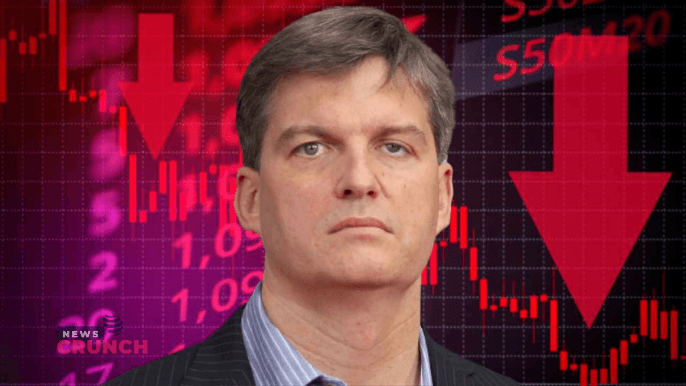
Early Life & Education
Michael Burry’s upbringing played a crucial role in shaping his resilience. Born and raised in San Jose, he was diagnosed with retinoblastoma, a rare eye disease, during childhood. As a result, he lost his left eye and has worn a prosthetic ever since. This personal challenge did not deter him; instead, it gave him a sense of discipline and focus that carried into his academic and professional life, inspiring admiration and respect in those who know his story.
From a young age, Burry displayed both intellectual curiosity and determination. He attended Santa Teresa High School before pursuing a degree in economics and pre-medical studies at the University of California, Los Angeles (UCLA). His blend of economics and medicine, a unique combination that reflects his broad interests, but finance captured his imagination, continues to fascinate those who study his life.
He later entered the Vanderbilt University School of Medicine, where he trained as a physician. During medical school, Burry developed a unique habit after long days in class; he would spend late nights analyzing financial statements, stock trends, and market history. His research was rigorous, detailed, and independent of Wall Street influences, earning him the admiration and respect of his peers.
Even during his medical residency at Stanford Hospital, Burry maintained a strong interest in investing. He began publishing his stock picks and analysis online, and his remarkable accuracy attracted attention from investors who would later fund his hedge fund.
This combination of medical discipline and financial passion laid the foundation for his later success. It showed that unconventional paths often lead to extraordinary outcomes.
Career Beginnings & Rise
Michael Burry’s career in finance took off in the late 1990s when he started sharing his stock research on internet forums and his personal blog. His writing stood out for its clarity, depth, and evidence-based approach. Soon, major investors noticed his work, and he gained a loyal following in the value investing community.
In 2000, after completing his medical residency, Burry launched Scion Capital, using funds from his savings and support from investors impressed by his track record. The fund quickly became known for its consistent returns, even during turbulent markets. His strategy was simple yet powerful: focus on undervalued companies, ignore market noise, and maintain conviction in well-researched decisions.
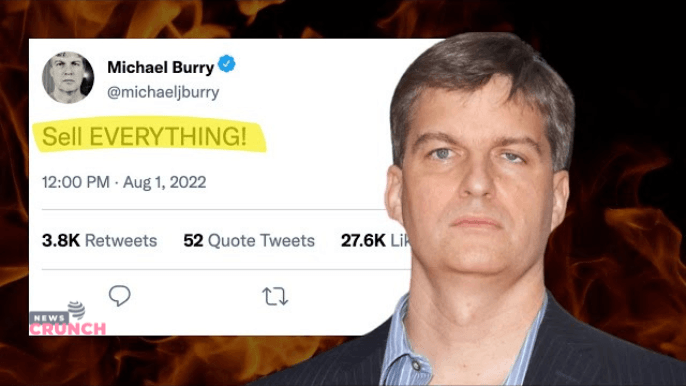
Between 2000 and 2008, Scion Capital delivered outstanding returns, outperforming many established hedge funds. Burry’s style combined traditional value investing with a willingness to challenge consensus thinking. He wasn’t afraid to short overvalued assets, even when others thought it was risky.
As his reputation grew, so did the assets under management. By the mid-2000s, Scion Capital was handling hundreds of millions of dollars. Yet, Burry remained an intensely private individual, focused more on data and fundamentals than publicity.
His rise to fame was cemented when he identified flaws in the U.S. housing market, a prediction that would define his career. While most fund managers dismissed his concerns, Burry acted decisively, setting the stage for one of the most famous trades in financial history.
The Big Short Success
The defining chapter of Michael Burry’s career came with his role in predicting and profiting from the 2008 housing crash. In the early 2000s, he began analyzing the U.S. mortgage market and noticed troubling patterns. Subprime loans, often given to borrowers with poor credit histories, were bundled into mortgage-backed securities and sold as safe investments.
While Wall Street and rating agencies continued to label these assets as secure, Burry saw through the illusion. His research revealed that many of these loans were destined to default. Convinced of an impending collapse, he took a bold step: he persuaded investment banks to create credit default swaps (CDS), a financial instrument that allows an investor to ‘swap’ or offset their credit risk with that of another investor, to allow him to bet against mortgage-backed securities.
This move was revolutionary. At the time, shorting the housing market, a strategy where an investor bets that the value of an asset will decrease, seemed absurd. Investors criticized Burry, and many clients of Scion Capital grew frustrated with his unorthodox strategy. But Burry held firm, trusting his data.
When the housing bubble burst in 2008, his conviction paid off spectacularly. His fund earned over $700 million for investors and approximately $100 million personally. This achievement cemented his reputation as a visionary contrarian investor.
His story gained mainstream recognition through Michael Lewis’s book The Big Short and the Hollywood film adaptation, where actor Christian Bale portrayed him. This brought Burry’s journey into popular culture, showcasing not just his financial genius but also the personal challenges he faced while holding an unpopular stance.
Scion Capital & Investments
Scion Capital, founded in 2000, became the foundation of Michael Burry’s investment career. The fund was named after his favorite book, The Scions of Shannara, reflecting his interest in literature and finance. From the start, Scion was a unique, small, independently run, and highly data-driven.
Burry’s management style was different from that of typical hedge funds. He preferred a focused portfolio with a limited number of carefully researched positions. His ability to identify undervalued companies and avoid hype-driven markets made Scion profitable, even during downturns.
The most famous chapter of Scion’s history was the shortening of the housing market. But beyond that, the fund’s strategy included deep value stock picking, opportunistic shorts, and unconventional plays. Burry closed Scion Capital in 2008 after the housing crash, choosing to focus on personal investments and family life.
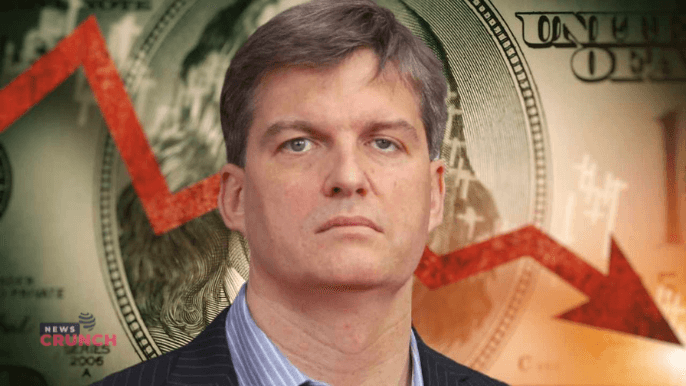
In later years, he re-emerged under Scion Asset Management, continuing to manage outside capital with the same contrarian mindset. His firm often discloses positions through SEC filings, and investors closely watch his portfolio moves for insight into market trends.
Scion’s legacy lies in profits and in proving the power of independent analysis. Burry demonstrated that small, nimble funds could outthink massive Wall Street institutions if they dared to stick with well-researched convictions.
Net Worth & Income Sources
Michael Burry’s net worth has been a subject of curiosity ever since his success during the 2008 housing crash. Estimates suggest that his personal fortune exceeds $300 million, though figures fluctuate depending on his portfolio performance and private investments.
The bulk of his wealth comes from his hedge fund activities, particularly the gains from Scion Capital’s housing market short. His personal payout of about $100 million from that trade remains one of the most significant single wins in hedge fund history.
Beyond hedge funds, Burry has invested in a wide range of assets. These include stocks, farmland, technology companies, and water rights. His philosophy often revolves around identifying overlooked assets with long-term potential. For example, his focus on water as a scarce and vital resource reflects his ability to think decades ahead.
Burry’s net worth is also tied to his ongoing role at Scion Asset Management, where he manages capital and discloses positions. His SEC filings often influence retail and institutional investors, adding to his public reputation.
Although wealthy, Burry is not known for a lavish lifestyle. Instead, he remains grounded, focusing on family and intellectual pursuits. His income streams are diverse, but his deep conviction in research-driven investing links them all.
Investment Strategies & Philosophy
Michael Burry’s investment philosophy is rooted in value investing but has a contrarian edge. He carefully studies financial statements, market cycles, and economic data, often uncovering opportunities others overlook. Inspired by Benjamin Graham and Warren Buffett, he emphasizes intrinsic value, long-term thinking, and a margin of safety.
Unlike many hedge fund managers, Burry is not swayed by short-term market sentiment. He often holds unpopular positions, even if they invite criticism. His bet against the housing market in 2008 exemplifies this when everyone else was bullish; he focused on underlying risks.
Burry also embraces concentrated portfolios. Instead of diversifying broadly, he prefers to invest deeply in a handful of well-researched companies or assets. This approach allows him to maximize returns but requires immense conviction and discipline.
A key part of his philosophy is risk management. By identifying systemic weaknesses, he positions himself to profit when markets correct. His ability to blend patience with decisive action makes his style unique.
Investors who follow Burry’s work often describe him as bold, meticulous, and uncompromising. His philosophy encourages others to rely on independent analysis rather than unthinkingly following trends.
Water Investments & Future Vision
One of Michael Burry’s most intriguing investment themes is his focus on water. He believes that as the global population grows and climate change intensifies, water will become the most critical resource of the future. Unlike oil or gold, water has no substitute, making it a vital driver of economies and survival.
Burry does not directly invest in water companies. Instead, he looks for indirect ways to profit from the scarcity of water resources. This includes buying farmland in regions with reliable water supplies and producing crops that can be exported to water-stressed areas. His approach reflects a practical, long-term vision rather than speculative trading.
He has discussed how water scarcity could shape geopolitics, agriculture, and migration. By positioning his investments around these shifts, Burry demonstrates his ability to look decades ahead, beyond immediate financial gains.
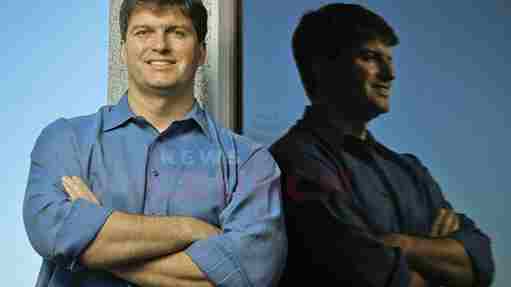
This focus on water highlights his broader philosophy: identifying overlooked global risks and turning them into opportunities. It shows that his contrarian mindset is not limited to Wall Street but extends to global sustainability challenges.
Public Image & Criticism
Michael Burry’s public image is complex. To admirers, he is a visionary who defied Wall Street consensus and proved the value of independent thinking. To critics, he can appear overly pessimistic, eccentric, or even combative in his views.
After the 2008 housing crash, Burry was celebrated as a financial genius. However, his decision to short the market was met with resistance at the time. Many investors withdrew from Scion Capital, frustrated by his unorthodox bets, even though they later proved correct.
Burry also faces criticism for his blunt communication style. He often shares direct, sometimes alarming, insights on Twitter or in interviews, predicting market downturns or systemic risks. While some view this as valuable foresight, others see it as fear-mongering.
Burry’s credibility remains strong despite mixed opinions because of his track record. Investors worldwide watch his moves closely, knowing that even if his views sound extreme, they often carry deep analytical weight. Regardless of popularity, his ability to stay authentic defines his unique public image.
Personal Life & Family
Outside of finance, Michael Burry leads a private and family-focused life. He is married and has children, though he rarely shares personal details publicly. Despite his wealth, he avoids the flashy lifestyles associated with hedge fund managers, preferring simplicity and privacy.
Burry’s family has been an essential anchor throughout his career, especially during stressful periods like the housing market bust. While many around him doubted his strategy, his family’s support helped him maintain conviction.
He also values intellectual pursuits outside finance, including literature and history. His naming Scion Capital after a favorite fantasy novel illustrates his love for storytelling and imagination.
Though reserved, Burry occasionally discusses family values and the importance of resilience, hinting at how his upbringing and personal experiences shaped his worldview. His life remains an example of balance, proving that family and individual well-being can remain priorities even in high-stakes finance.
Health Challenges & Retinoblastoma
Michael Burry’s life was shaped early by a serious health challenge. As a child, he was diagnosed with retinoblastoma, a rare form of eye cancer. This led to the loss of his left eye, and he has worn a prosthetic ever since.
Rather than holding him back, this experience built resilience and determination. He learned to focus intensely on his goals, whether in academics or later in finance. His medical condition also contributed to pursuing a medical career before transitioning to investing.
Interestingly, some speculate that his ability to think differently and notice overlooked details may be linked to how he adapted to life with partial vision. While he never sought sympathy, his story serves as a reminder of how adversity can foster strength and focus.
By overcoming personal health struggles, Burry set an example that challenges can be turned into opportunities. His journey inspires not just investors but anyone facing difficulties in life.
Latest News & Market Views
Michael Burry frequently makes headlines for his bold market predictions. Known for his contrarian outlook, he often warns about bubbles in stocks, cryptocurrencies, or debt markets. Investors closely track his statements and Scion Asset Management’s SEC filings to gauge his latest moves.
In recent years, Burry has raised alarms about excessive market speculation, drawing parallels to conditions before the 2008 crash. He has also commented on inflation, Federal Reserve policies, and global economic risks. While not all his warnings have materialized, his reputation ensures they spark debate.
Burry’s influence extends to retail investors, who dissect his quarterly filings to see which stocks he buys or sells. For example, his positions in tech companies, healthcare firms, and water-related investments often generate headlines.
Though private, Burry uses platforms like Twitter to share thoughts, sometimes deleting posts shortly after. This adds to his mystique and fuels curiosity about his strategies. His latest views continue to shape conversations in the financial world, reinforcing his role as a thought leader.
Media Presence & Interviews
Michael Burry’s fame skyrocketed after being portrayed by Christian Bale in The Big Short. The film brought his story to a mainstream audience, highlighting his genius and challenges.
Though not a media personality, Burry occasionally gives interviews that attract wide attention. In these rare appearances, he discusses market risks, personal philosophies, and the lessons of the 2008 crash. His straightforward and sometimes blunt style adds authenticity to his insights.
He also maintains a digital presence, where his brief but impactful statements on economic issues spark widespread coverage. Journalists and analysts often interpret his remarks as signals of broader market sentiment.
While Burry may not seek fame, the media views him as a symbol of contrarian thinking and resilience. His portrayal in popular culture and real-world commentary ensures that his influence extends beyond Wall Street.
Legacy & Global Impact
Michael Burry’s legacy is firmly tied to his role in predicting the U.S. housing bubble and profiting from its collapse. Yet his impact goes beyond financial gains. He symbolizes the value of independent analysis, resilience, and the courage to challenge mainstream narratives.
His story has inspired countless investors to trust their research and convictions, even when facing opposition. The book and film The Big Short turned him into a cultural icon, demonstrating how one individual can influence global finance.
Beyond finance, his focus on water investments highlights his forward-thinking vision about sustainability and global challenges. He is remembered for past achievements and his continued ability to identify long-term risks and opportunities.
Critics may debate his tone or accuracy in recent predictions, but few deny his influence on modern investing. Michael Burry will always be remembered as the investor who defied Wall Street, redefined contrarian strategies, and inspired future generations to think independently.
Conclusion
Michael Burry’s journey from a medical student to a legendary investor is a story of resilience, foresight, and conviction. He turned personal challenges and professional skepticism into strengths, proving that independent analysis can rival and surpass Wall Street giants.
His bet against the 2008 housing market remains one of the most iconic trades in history, but his broader philosophy offers timeless lessons. By focusing on value, managing risks, and looking beyond the obvious, Burry demonstrated that success comes from courage as much as intelligence.
Today, he continues to shape financial discussions through investments, bold warnings, and unique perspectives on the future. For investors and readers alike, Michael Burry’s legacy reminds them that true visionaries are often misunderstood until proven correct.
Read Also: Best Business Start-Up Grants and Schemes in the UK
FAQs
- Who is Michael Burry?
Michael Burry is a U.S. investor, physician, and hedge fund manager best known for predicting the 2008 housing crash and being portrayed in the film The Big Short. - How much did Michael Burry make in 2008?
Michael Burry made around $100 million personally, while his hedge fund Scion Capital earned over $700 million by shorting the subprime mortgage market before the 2008 crash. - What is Michael Burry’s net worth?
His net worth is estimated at over $300 million, mainly from hedge fund management, stock investments, and long-term strategies like water-focused investments. - Did Michael Burry study medicine?
Yes. Michael Burry earned his M.D. from Vanderbilt University School of Medicine and initially pursued a medical career before transitioning to finance full-time. - What is Michael Burry’s investment philosophy?
Burry follows value investing with a contrarian twist, focusing on undervalued assets, concentrated bets, and data-driven analysis rather than market sentiment. - Why is water essential to Michael Burry?
Burry views water as the most vital resource of the future. He invests indirectly by purchasing farmland with water access and producing crops for water-scarce regions. - What health condition does Michael Burry have?
He was diagnosed with retinoblastoma in childhood, which caused him to lose his left eye. Since then, he has worn a prosthetic eye, but never let it hold him back. - Is Michael Burry still investing today?
Yes. Through Scion Asset Management, Michael Burry continues to manage investments, file SEC reports, and share market views that often attract global attention. - Why is Michael Burry famous?
He became famous for predicting the 2008 U.S. housing crash, profiting heavily, and being portrayed in The Big Short. His contrarian style still influences investors.
10. Where does Michael Burry live?
Michael Burry lives in the United States with his family. Though private about personal details, he is known to prioritize family life over a flashy lifestyle.







